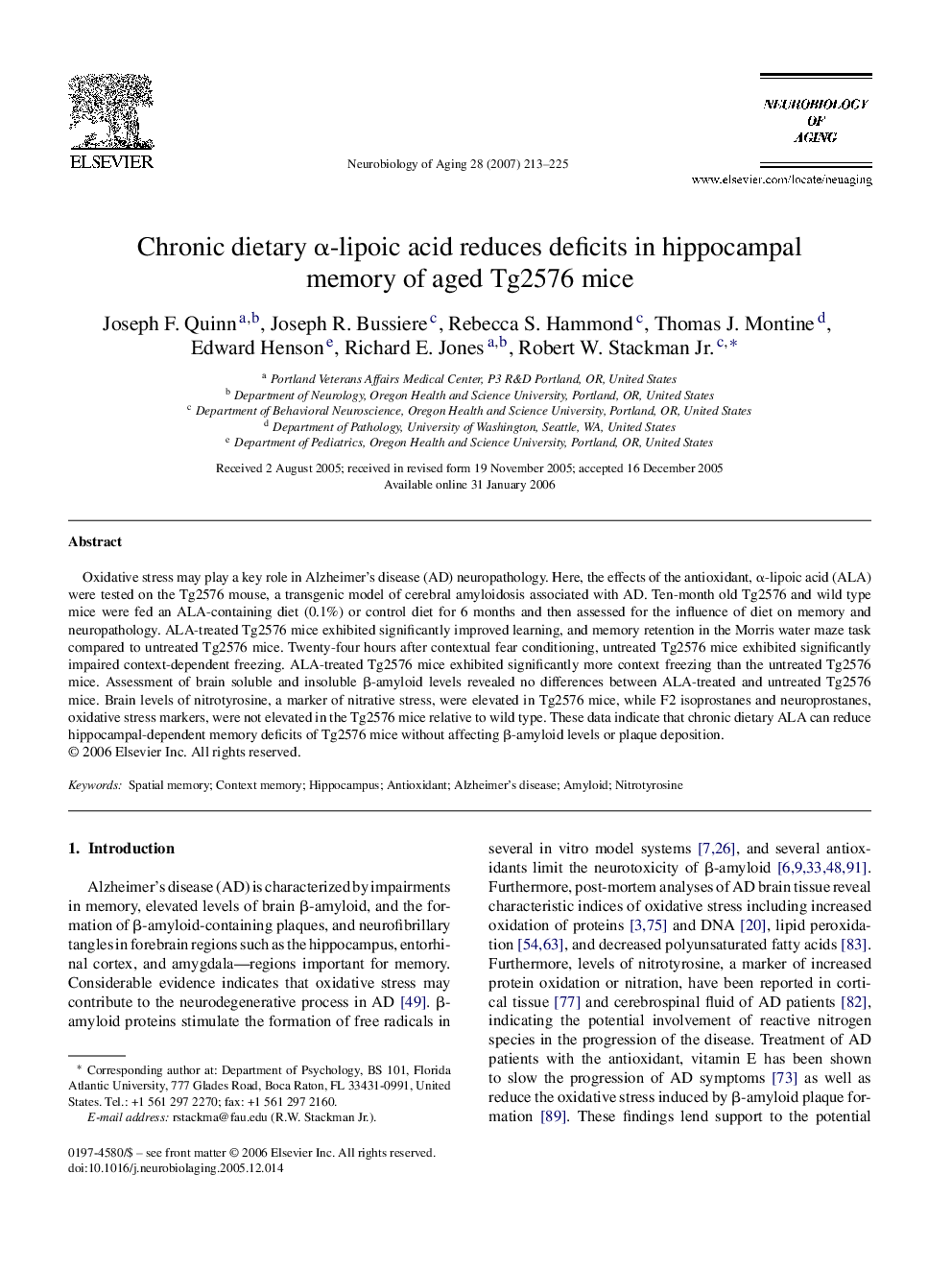| Article ID | Journal | Published Year | Pages | File Type |
|---|---|---|---|---|
| 329524 | Neurobiology of Aging | 2007 | 13 Pages |
Oxidative stress may play a key role in Alzheimer's disease (AD) neuropathology. Here, the effects of the antioxidant, α-lipoic acid (ALA) were tested on the Tg2576 mouse, a transgenic model of cerebral amyloidosis associated with AD. Ten-month old Tg2576 and wild type mice were fed an ALA-containing diet (0.1%) or control diet for 6 months and then assessed for the influence of diet on memory and neuropathology. ALA-treated Tg2576 mice exhibited significantly improved learning, and memory retention in the Morris water maze task compared to untreated Tg2576 mice. Twenty-four hours after contextual fear conditioning, untreated Tg2576 mice exhibited significantly impaired context-dependent freezing. ALA-treated Tg2576 mice exhibited significantly more context freezing than the untreated Tg2576 mice. Assessment of brain soluble and insoluble β-amyloid levels revealed no differences between ALA-treated and untreated Tg2576 mice. Brain levels of nitrotyrosine, a marker of nitrative stress, were elevated in Tg2576 mice, while F2 isoprostanes and neuroprostanes, oxidative stress markers, were not elevated in the Tg2576 mice relative to wild type. These data indicate that chronic dietary ALA can reduce hippocampal-dependent memory deficits of Tg2576 mice without affecting β-amyloid levels or plaque deposition.
